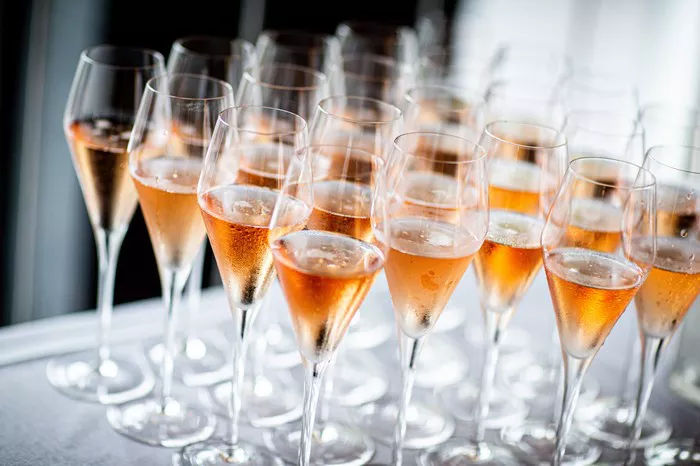The intrigue behind the genesis of cocktails spans centuries, interweaving historical narratives, cultural influences, and the evolution of social customs. The question “What is the origin of cocktails?” piques curiosity and leads us on a compelling exploration of the past. While the precise genesis of the word “cocktail” remains shrouded in mystery, the concoction’s origins can be traced to a fascinating tapestry of global encounters, innovations, and vibrant tales.
The Enigmatic Origins of the Term “Cocktail”
Delving into the etymology of the term “cocktail” unfurls a web of theories and conjectures. One popular belief is rooted in the 18th century, where an apothecary by the name of Antoine Peychaud in New Orleans purportedly served brandy libations in eggcups known as coquetiers in French. Over time, the term “cock-tail” might have emerged as a distortion of the French word. Another theory suggests that the word originated from the English practice of using rooster feathers (“cock-tails”) as garnishes in drinks. Despite these theories, the precise genesis remains elusive, encapsulating the enigmatic allure of the cocktail’s nomenclature.
Early Beginnings: The Evolution of Mixed Drinks
The genesis of mixed drinks predates the term “cocktail” by centuries. Historical records trace the lineage of cocktails to ancient civilizations where medicinal concoctions blended herbs, spirits, and other ingredients. Early civilizations such as the Babylonians and Egyptians infused herbs and spices into alcoholic beverages for their presumed therapeutic properties. The Greeks and Romans followed suit, utilizing mixtures of wine and herbs for both medicinal and celebratory purposes. These early libations laid the foundation for the evolution of mixed drinks across continents and cultures.
Colonial Influence and the Birth of American Cocktails
The trajectory of cocktails took a significant turn during the colonial era, particularly in America. The burgeoning cocktail culture in the United States was influenced by various factors, including the availability of spirits, the transatlantic exchange of ingredients, and the amalgamation of diverse cultural practices. The 18th century witnessed the rise of taverns and punch houses where spirits like rum, brandy, and whiskey were readily available, contributing to the proliferation of mixed drinks.
During this era, the term “cocktail” started gaining prominence. It was in the early 19th century that the first written definition of a cocktail emerged. In 1806, “The Balance and Columbian Repository” of Hudson, New York, defined a cocktail as a concoction comprising spirits, sugar, water, and bitters. This definition laid the groundwork for the cocktail as we recognize it today, emphasizing the importance of balance and key ingredients.
Innovation and Mixology: The Golden Age of Cocktails
The 19th century marked a golden age for cocktails, witnessing the refinement of mixology and the emergence of iconic drinks. Bartenders, or “mixologists” as they were later termed, began experimenting with diverse ingredients, perfecting recipes, and creating signature concoctions. Notable figures such as Jerry Thomas, often regarded as the father of American mixology, published seminal works like “The Bon Vivant’s Companion” in 1862, which contained numerous cocktail recipes, elevating the art of mixology to new heights.
Several iconic cocktails made their debut during this period. The Mint Julep, Sazerac, Martini, and Old Fashioned are among the timeless classics that emerged from this era, each carrying its own unique history and cultural significance. These libations became emblematic of sophistication, leisure, and conviviality, shaping social interactions and influencing popular culture.
Prohibition and Cocktail Renaissance
The 20th century brought both challenges and innovations to the cocktail landscape. The enactment of Prohibition in the United States from 1920 to 1933 led to the closure of legal drinking establishments, driving the culture of cocktails underground. Speakeasies, clandestine bars that served illicit alcohol, became the clandestine hubs where mixologists continued to craft cocktails, often experimenting with homemade spirits and mixers.
Paradoxically, Prohibition also spurred creativity in mixology. Bartenders devised innovative ways to mask the harsh taste of bootlegged liquors, leading to the creation of flavorful cocktails that endured beyond the Prohibition era. Classic cocktails like the Sidecar, French 75, and the Hemingway Daiquiri emerged during this tumultuous time, contributing to the rich tapestry of cocktail history.
Global Spread and Contemporary Evolution
The latter half of the 20th century witnessed the globalization of cocktail culture. As travel and communication became more accessible, cocktails transcended borders, leading to a fusion of flavors and techniques from various parts of the world. Tiki culture, popularized by figures like Donn Beach and Trader Vic, introduced Polynesian-inspired cocktails, adorned with elaborate garnishes and exotic flavors, captivating audiences worldwide.
Moreover, the emergence of cocktail competitions, the revival of classic recipes, and the emphasis on artisanal ingredients have fueled the contemporary renaissance of cocktails. Mixologists today draw inspiration from the past while innovating with modern techniques, creating a dynamic landscape where tradition and innovation intersect.
Conclusion
In unraveling the origins of cocktails, one traverses a captivating narrative of cultural exchange, innovation, and human creativity. From ancient medicinal brews to the refined concoctions of the modern era, the evolution of cocktails mirrors the evolution of societies and their penchant for conviviality. While the exact genesis of the term “cocktail” remains veiled in historical obscurity, the enduring allure of this libation continues to captivate enthusiasts, transcending time and boundaries. As mixology evolves and cocktails endure as a cultural emblem, their history remains an enduring testament to the artistry of human indulgence and conviviality.


